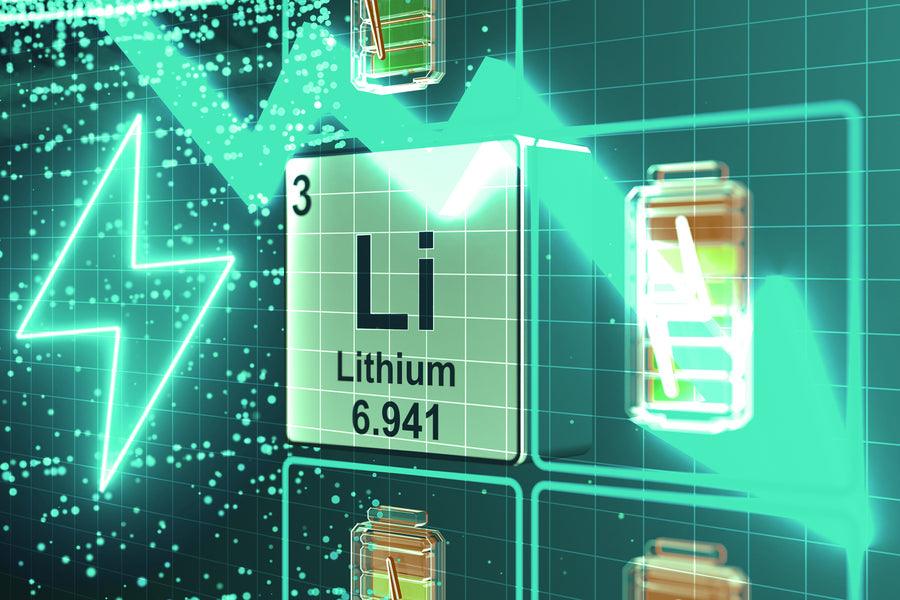
The Science Behind Lithium-Ion Batteries: Understanding Atomic-Scale Imperfections.
Share
In recent years, lithium-ion batteries have become the go-to power source for a wide range of devices and applications, from smartphones and laptops to electric vehicles and renewable energy systems. But despite their widespread use and popularity, researchers are still trying to understand the underlying science behind these batteries, including the atomic-scale imperfections that can affect their performance. In this article, we'll explore the benefits and limitations of these imperfections, and what they mean for the future of lithium-ion batteries.
Benefits of Atomic-Scale Imperfections
One of the key benefits of atomic-scale imperfections in lithium-ion batteries is that they can improve the overall performance of the battery. For example, researchers have found that certain imperfections can increase the battery's energy density, making it possible to store more energy in a smaller space. This can be particularly important for applications like electric vehicles, where weight and space are limited.
Another benefit of atomic-scale imperfections is that they can help to improve the battery's safety. In some cases, imperfections can act as a safety mechanism, helping to prevent the battery from overheating or catching fire. This is especially important for applications like electric vehicles, where the risk of fire is a major concern.
Limitations of Atomic-Scale Imperfections
Despite the benefits, atomic-scale imperfections can also have negative effects on lithium-ion batteries. For example, some imperfections can cause the battery to degrade over time, reducing its overall performance and lifespan. This can be particularly problematic for applications like renewable energy systems, where the battery needs to be able to store energy over a long period of time.
Another limitation of atomic-scale imperfections is that they can make it difficult to predict and control the behavior of the battery. For example, researchers have found that imperfections can affect the battery's charging and discharging behavior, making it more difficult to manage the battery's energy output.
The Future of Lithium-Ion Batteries
Despite the limitations, researchers are continuing to work on improving the performance and reliability of lithium-ion batteries. One approach is to find ways to reduce the number and impact of atomic-scale imperfections, either through advanced manufacturing techniques or through the use of new materials.
Another approach is to develop new technologies that can better manage the behavior of lithium-ion batteries, even in the presence of imperfections. For example, researchers are working on developing new control algorithms that can regulate the battery's charging and discharging behavior, improving its overall performance and reliability.
Lithium-ion batteries are an essential part of our modern world, powering a wide range of devices and applications. Despite their popularity, researchers are still trying to understand the underlying science behind these batteries, including the atomic-scale imperfections that can affect their performance. While imperfections can have both positive and negative effects on the battery, researchers are continuing to work on improving their performance and reliability, ensuring that they remain a vital part of our energy landscape for years to come.
Benefits of Atomic-Scale Imperfections
One of the key benefits of atomic-scale imperfections in lithium-ion batteries is that they can improve the overall performance of the battery. For example, researchers have found that certain imperfections can increase the battery's energy density, making it possible to store more energy in a smaller space. This can be particularly important for applications like electric vehicles, where weight and space are limited.
Another benefit of atomic-scale imperfections is that they can help to improve the battery's safety. In some cases, imperfections can act as a safety mechanism, helping to prevent the battery from overheating or catching fire. This is especially important for applications like electric vehicles, where the risk of fire is a major concern.
Limitations of Atomic-Scale Imperfections
Despite the benefits, atomic-scale imperfections can also have negative effects on lithium-ion batteries. For example, some imperfections can cause the battery to degrade over time, reducing its overall performance and lifespan. This can be particularly problematic for applications like renewable energy systems, where the battery needs to be able to store energy over a long period of time.
Another limitation of atomic-scale imperfections is that they can make it difficult to predict and control the behavior of the battery. For example, researchers have found that imperfections can affect the battery's charging and discharging behavior, making it more difficult to manage the battery's energy output.
The Future of Lithium-Ion Batteries
Despite the limitations, researchers are continuing to work on improving the performance and reliability of lithium-ion batteries. One approach is to find ways to reduce the number and impact of atomic-scale imperfections, either through advanced manufacturing techniques or through the use of new materials.
Another approach is to develop new technologies that can better manage the behavior of lithium-ion batteries, even in the presence of imperfections. For example, researchers are working on developing new control algorithms that can regulate the battery's charging and discharging behavior, improving its overall performance and reliability.
Lithium-ion batteries are an essential part of our modern world, powering a wide range of devices and applications. Despite their popularity, researchers are still trying to understand the underlying science behind these batteries, including the atomic-scale imperfections that can affect their performance. While imperfections can have both positive and negative effects on the battery, researchers are continuing to work on improving their performance and reliability, ensuring that they remain a vital part of our energy landscape for years to come.




